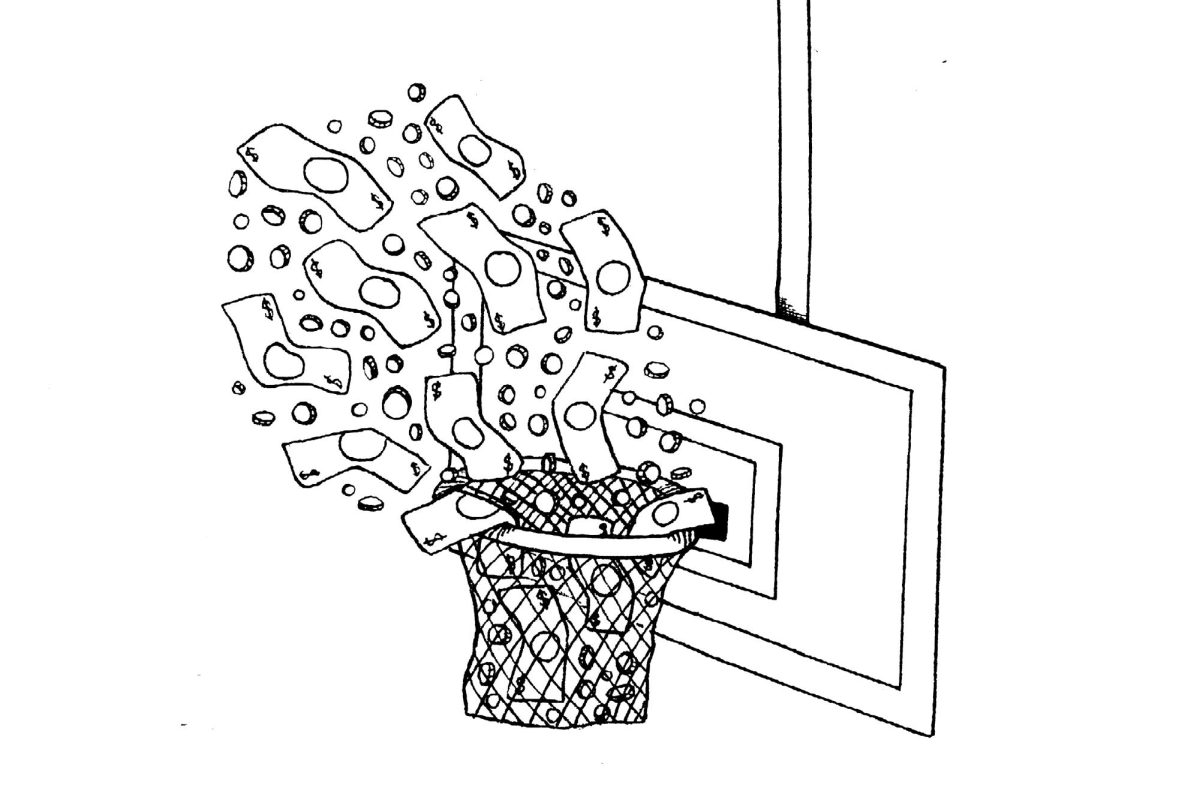It’s a new year, and GW has welcomed a new president. As the University’s top job comes to be occupied by former Washington University in St. Louis Chancellor Mark Wrighton and GW enters a fifth pandemic-era semester, now is a good time to take stock of what the University has been doing right in response to COVID-19, what it has done wrong and how GW should proceed from here.
Of course, the biggest and most noteworthy pandemic decision GW has made recently was to hold the first week of the semester virtually – and to stick to its Jan. 18 date of resuming in-person classes. Time will tell whether sticking to reopening on that date was the right move, but generally speaking, the University has shown good judgement and clear vision in its COVID-19 policies in the past few months – especially in response to the rapidly spreading Omicron variant.
GW’s decision in December to move the first week of the semester online was clearly indicative of a desire to restore normalcy as quickly and safely as possible. Given the inherent difficulties associated with online education, the University is wise in making every effort to reopen classrooms safely. Zoom University is the best Plan B when in-person education is unsafe, but it does not offer anywhere close to the instructional quality as being in the classroom does. Placing educational quality toward the top of the priority list is one of administrators’ chief responsibilities.
But an even higher responsibility is keeping the community safe. In many areas, administrators have exhibited clear-eyedness about the risks posed by Omicron and willingness to move quickly to prevent outbreaks on campus. GW announced a booster shot requirement well before many other colleges and universities did – and the University made a decisive and sober choice in moving the booster deadline sooner to prevent cases from skyrocketing when campus reopened. With robust testing requirements in place, limited residence hall access and the closure of many campus facilities to the public or even to students, it is clear that getting students back in the classroom safely is a top priority.

Maura Kelly-Yuoh | Cartoonist
These elements of GW’s COVID-19 response have been positive substantively, but they were also communicated clearly and effectively. The move to online learning for the first week of classes was announced with about three weeks’ notice, which, considering how rapidly the pandemic’s facts on the ground have been changing, is impressively far in advance. The University has also been communicative over email about booster requirements, limited access to campus facilities and the importance of masking.
There are still several aspects of GW’s pandemic response that it needs to improve upon. The University needs to create and enforce a set of standards that tells students what to do if and when they test positive, and one that tells professors how to handle this situation. As of now, many professors are maintaining their position on attendance, making every class mandatory or only making one or two allowances for “unexcused absences.” This becomes suffocating for students who not only have the burden of school and work, but also the burden of being worried about catching COVID-19, ensuring their families and friends are safe and healthy and potentially isolating themselves from everybody if they test positive. This stress is taking a large toll on everybody, and some more empathy from professors in the form of more leniency would give students more time to breathe.
GW also needs to create a space to hold faculty accountable if they do not give students enough leeway with attendance if they test positive or if they do not respect students’ mental health enough to allow them to miss a couple more classes than they would in normal circumstances. This would ensure that professors adhere to the created set of standards and thus would aid in keeping students’ mental health intact. Once we return to in-person classes this week, professors will also need to be masked up regardless of how far away they stand from students. GW should also create an online system for students to register a complaint against a professor who does not wear their mask during instruction.
The University should also improve upon GW Information Technology infrastructure and staffing. Because of the uncertainty regarding the coming months, GW should prepare to hold classes either in a hybrid format or going completely online. A stronger GWIT department will make both of these course formats smoother.
Administers should also make sure to center the safety at-risk students, faculty and staff in the discussion as they continue to develop COVID-19 protocols. Even as most of us attend classes in-person, those at-risk might want to stay home and take classes online especially during the flu season. This aspect underscores the importance of strengthening the GWIT department because a stronger hybrid learning plan in place will allow those who want to take classes from home to be able to do so with minimal technical difficulty.
The editorial board is generally loath to offer praise to the University, its decision-making and its decision-makers. But in this case, GW has done a generally proficient job responding to the Omicron variant. Much of what we called for in our most recent staff editorial – a booster requirement, better testing and more attentive public communications – has been fulfilled by the University in the past few weeks. For that reason, we offer praise, albeit qualified praise.
The editorial board consists of Hatchet staff members and operates separately from the newsroom. This week’s staff editorial was written by opinions editor Andrew Sugrue and contributing opinions editor Shreeya Aranake based on discussions with culture editor Anna Boone, contributing sports editor Nuria Diaz, design editor Grace Miller and copy editor Jaden DiMauro.


